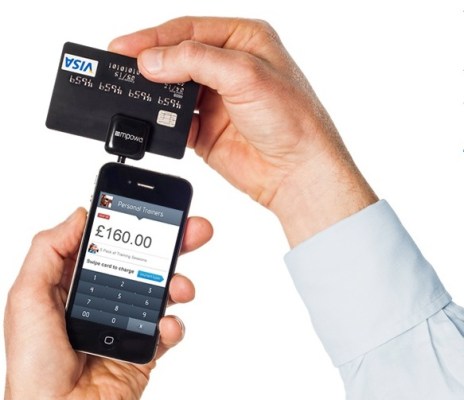Competition and activity continues to heat up in the mobile payments market. UK-based mPowa — a mobile payments provider that, like Square and others, provides a dongle that merchants can attach to a mobile device to process card payments — has signed a white-label deal with Portugal Telecom for the carrier to resell mPowa’s services as the centerpiece of its own mobile payments solution. The exact financial terms of the deal were not disclosed, but mPowa’s CEO Dan Wagner tells TechCrunch that the deal is for seven years, worth multiple millions of dollars as a minimum commitment, and potentially covers some 100 million people — the size of Portugal Telecom’s footprint across Europe, Latin America and Africa.
Wagner says that mPowa is preparing to announce additional customers later this year. He says that discussions with more carriers, as well as with banks, are in “late stages” after the company has been “inundated” with requests for partnerships.
Carrier partnerships is a natural and increasingly used channel for mobile payments companies to scale up their businesses. Square works with AT&T to resell its dongles, and in the UK iZettle works with EE.
mPowa had a slightly odd legal wrangle with Square last year when it was accused of lifting photographs from Square’s marketing materials. But in reality there are some fairly large differences between them.
Unlike Square, which has some 2.5 million customers and is mainly active in the U.S., mPowa has been setting its sights on trying to build up an international presence. The next deals to come from mPowa will be in Africa, Asia, South America and Europe. North American partnerships, he says, are likely to come after that. “I don’t know who will drop next but we’re talking to people in South America, Asia, Europe, and Africa. North America will be later this year, while others are in late-stage discussions.”
Like other mobile payment providers such as iZettle and Payleven that are targeting users outside the U.S., mPowa is working on the premise of chip-and-PIN solutions that do not use the magnetic stripe on the back of payment cards. This is required in many markets like Europe and is likely to be the worldwide standard, including the U.S., by 2015.
Wagner also adds that the PT deal is likely also to involve using mPowa’s e-commerce back-end services to integrate with the mobile point-of-sale solution.
Small businesses that do not have card-acceptance facilities have traditionally been a first target for dongle-based solutions — and they are in this PT deal as well — but mPowa is also aiming for its services to be used by any retailer or businesses that depends on point-of-sale transactions, regardless of size or existing infrastructure. The idea is to take any of those transactions away from cash registers.
“It will either be a case of customers browsing and scanning and then picking up goods at a collection point, or of sales assistants going around to where you are to complete transactions,” Wagner said.
The PT deal was a relatively quick turnaround, he said. “They came to us only in November,” he said. “I haven’t even been to Portugal.”
In its home market of Portugal, PT is already offering fiber-to-the-home solutions to some 1.6 million customers and was one of the early movers in LTE, which now covers 90% of the Portuguese population. Its plan is to extend those and other services across the whole of its footprint.
“mPowa will be integrated in Portugal Telecom Group’s innovative solutions and services with a ready to deploy, robust, resilient and secure infrastructure to allow us to roll out mobile point of sale solutions to our customers,” said Celso Martinho, CTO of the Sapo Portal, owned by Portugal Telecom, in a statement.
